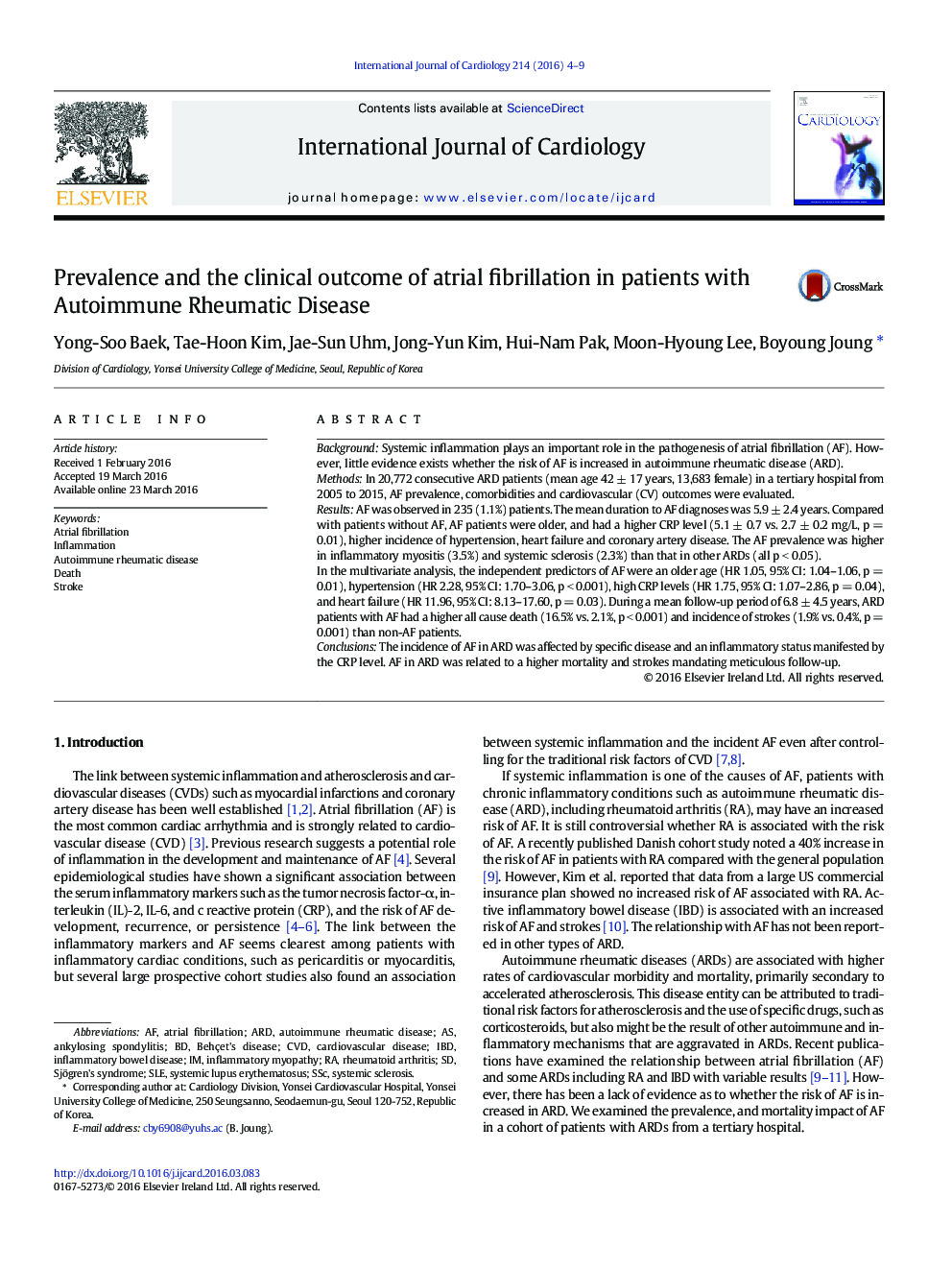| Article ID | Journal | Published Year | Pages | File Type |
|---|---|---|---|---|
| 5964614 | International Journal of Cardiology | 2016 | 6 Pages |
BackgroundSystemic inflammation plays an important role in the pathogenesis of atrial fibrillation (AF). However, little evidence exists whether the risk of AF is increased in autoimmune rheumatic disease (ARD).MethodsIn 20,772 consecutive ARD patients (mean age 42 ± 17 years, 13,683 female) in a tertiary hospital from 2005 to 2015, AF prevalence, comorbidities and cardiovascular (CV) outcomes were evaluated.ResultsAF was observed in 235 (1.1%) patients. The mean duration to AF diagnoses was 5.9 ± 2.4 years. Compared with patients without AF, AF patients were older, and had a higher CRP level (5.1 ± 0.7 vs. 2.7 ± 0.2 mg/L, p = 0.01), higher incidence of hypertension, heart failure and coronary artery disease. The AF prevalence was higher in inflammatory myositis (3.5%) and systemic sclerosis (2.3%) than that in other ARDs (all p < 0.05).In the multivariate analysis, the independent predictors of AF were an older age (HR 1.05, 95% CI: 1.04-1.06, p = 0.01), hypertension (HR 2.28, 95% CI: 1.70-3.06, p < 0.001), high CRP levels (HR 1.75, 95% CI: 1.07-2.86, p = 0.04), and heart failure (HR 11.96, 95% CI: 8.13-17.60, p = 0.03). During a mean follow-up period of 6.8 ± 4.5 years, ARD patients with AF had a higher all cause death (16.5% vs. 2.1%, p < 0.001) and incidence of strokes (1.9% vs. 0.4%, p = 0.001) than non-AF patients.ConclusionsThe incidence of AF in ARD was affected by specific disease and an inflammatory status manifested by the CRP level. AF in ARD was related to a higher mortality and strokes mandating meticulous follow-up.
